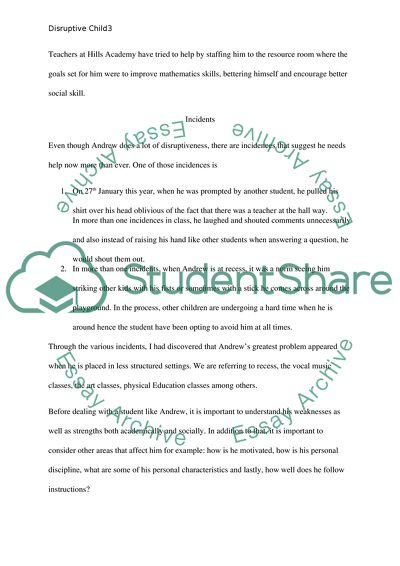Cite this document
(Early Childhood and Special Education Case Study Example | Topics and Well Written Essays - 2500 words, n.d.)
Early Childhood and Special Education Case Study Example | Topics and Well Written Essays - 2500 words. https://studentshare.org/education/1816708-2nd-grade-disruptive-student
Early Childhood and Special Education Case Study Example | Topics and Well Written Essays - 2500 words. https://studentshare.org/education/1816708-2nd-grade-disruptive-student
(Early Childhood and Special Education Case Study Example | Topics and Well Written Essays - 2500 Words)
Early Childhood and Special Education Case Study Example | Topics and Well Written Essays - 2500 Words. https://studentshare.org/education/1816708-2nd-grade-disruptive-student.
Early Childhood and Special Education Case Study Example | Topics and Well Written Essays - 2500 Words. https://studentshare.org/education/1816708-2nd-grade-disruptive-student.
“Early Childhood and Special Education Case Study Example | Topics and Well Written Essays - 2500 Words”. https://studentshare.org/education/1816708-2nd-grade-disruptive-student.


